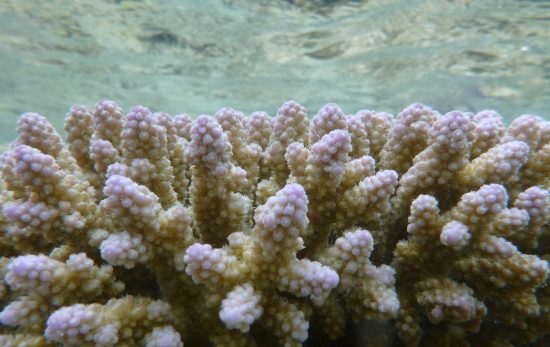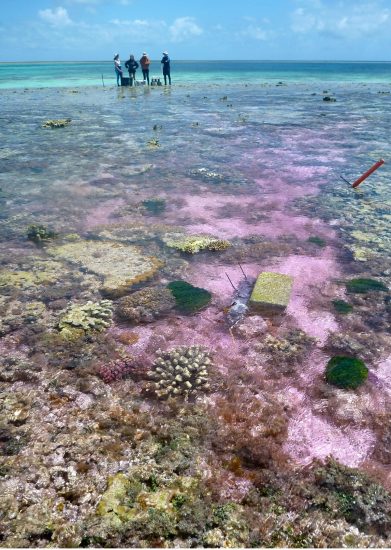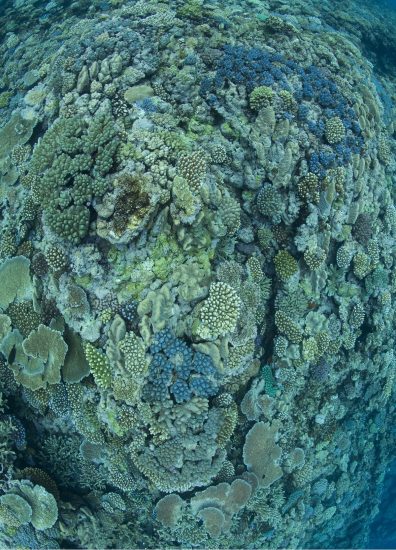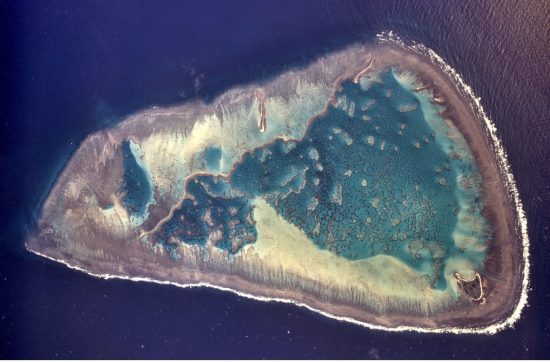





By
manipulating the seawater chemistry of a reef to study how excess carbon
dioxide caused by human activity affects coral reefs, a team of scientists from
Carnegie Institution of Science was able to prove that ocean acidification is
already slowing coral reef growth.
When
we burn coal, oil or gas, carbon dioxide is released into the atmosphere, where
it acts as a greenhouse gas. This amount of artificial gas doesn't just affect
the atmosphere; it has a negative impact on our oceans. Over time, much of the
carbon dioxide gets absorbed by the oceans, where it reacts with the seawater
to form an acid that is corrosive to coral reefs, shellfish and other marine
life. Such is the process of “ocean
acidification”.
Coral
reefs are particularly vulnerable to ocean acidification as their structure is
based on the accretion of calcium carbonate (known as “calcification”). However, this process has become more difficult as
acid concentrations increase and the pH level of the surrounding waters
decreases. Scientists predict that as a result of this acidification process,
coral reefs may switch from carbonate accretion to dissolution within the
century.
In
past studies, large-scale declines of coral reefs have been recorded in recent
decades. In a particular study, rates of reef calcification were 40 percent
lower in 2008 and 2009 than the rates in 1975 and 1976. However, it is
difficult to measure how much of the decline was due to acidification and how
much of it was due to global warming, pollution and overfishing.
For
the current study, the scientists manipulated the alkalinity of seawater of a
reef off Australia's One Tree Island in southern Great Barrier Reef. The pH
level of the reef was lowered to that of the pre-industrial period, based on
estimates of atmospheric carbon dioxide at that time. Then, the scientists
measured the reef's rate of calcification in the modified environment. The
results showed that the calcification rates under the pre-industrial conditions
were higher than in present times.
“Our work provides the first strong evidence from
experiments on a natural ecosystem that ocean acidification is already slowing
coral reef growth. Ocean acidification is already taking its toll on coral reef
communities. This is no longer a fear for the future; it is the reality of
today.” said one of the scientists.
It has been suggested that increasing the
alkalinity of the seawater can be used as a geo-engineering measure. In fact,
research has shown that doing this can be effective. However, to actually
implement this would be almost impossible except on a very small scale.
“The only real, lasting way to protect coral reefs is
to make deep cuts in our carbon dioxide emissions. If we don't take action on
this issue very rapidly, coral reefs – and everything
that depends on them, including both wildlife and local communities – will not survive into the next century,” said another scientist on the team.
Info:
https://carnegiescience.edu/
Link
to the study: http://www.nature.com/news/landmark-experiment-confirms-ocean-acidification-s-toll-on-great-barrier-reef-1.19410
 Mares
Mares 17th March 2016
17th March 2016